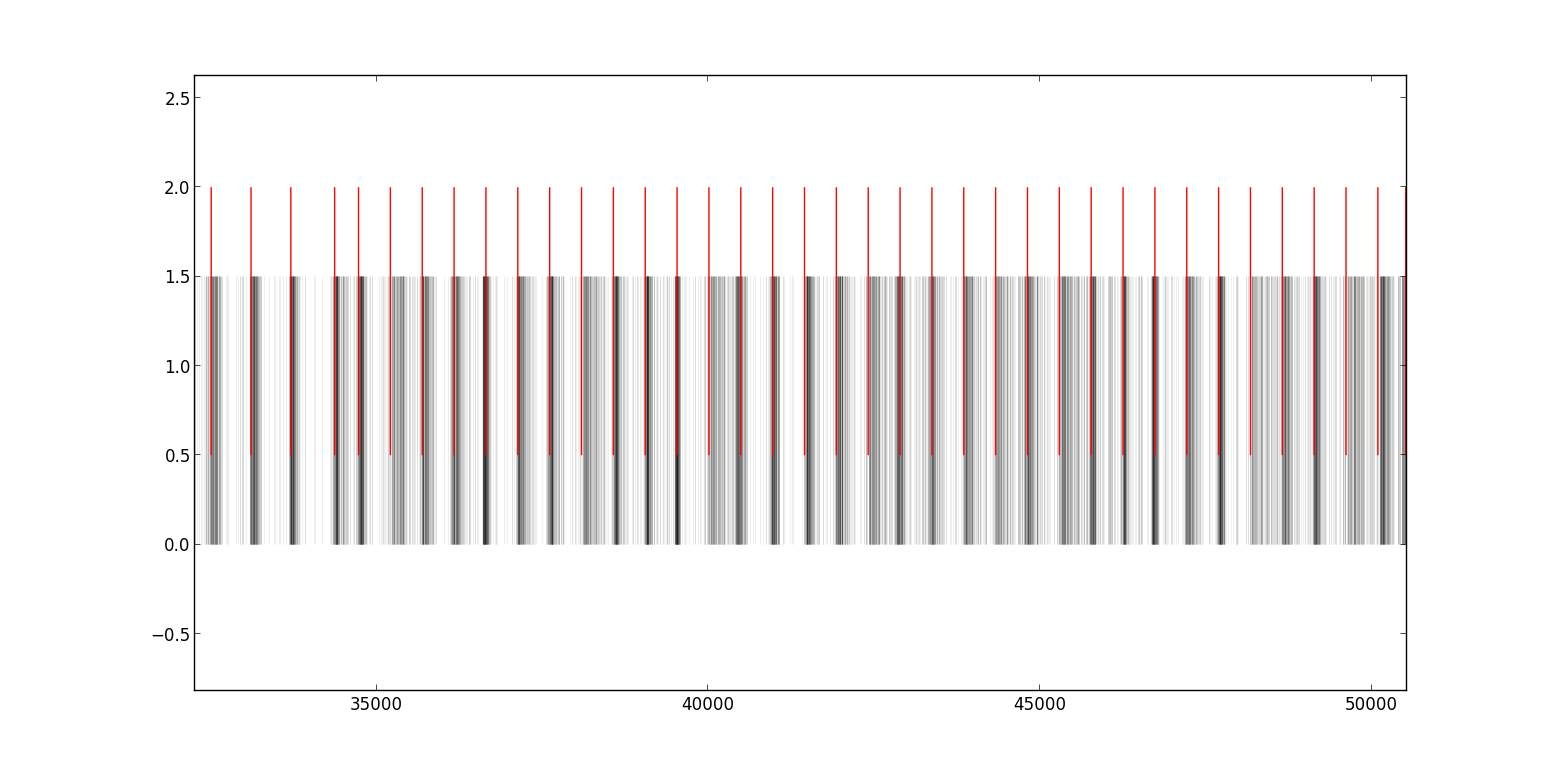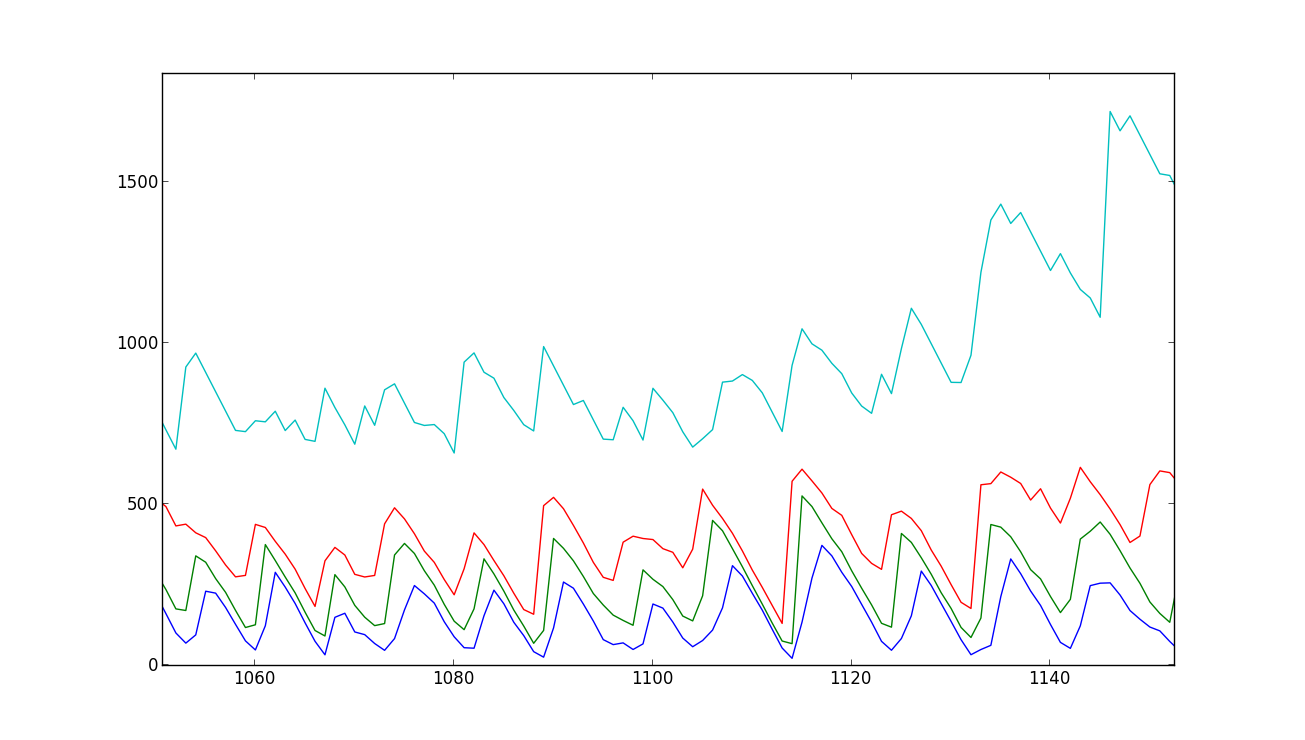Awesome
Busbuzzard
Inference of probabilistic schedules from empirical data about transit vehicles.
Massage GPS data into a set of observed stop_time events
Step 0: Get the data
- A CSV of points logged from the NextBus API.
- For example: https://dl.dropboxusercontent.com/u/1158424/route_5.csv.zip
- Try to find someone with a larger data dump, to get a larger data dump.
- An unzipped GTFS that describes the service recorded in the NextBus CSV
- Try http://www.gtfs-data-exchange.com/ for current and past GTFS feeds
Step 1: Slice a route out of the NextBus CSV dump
$ python slice_route.py data/nextbus.csv data/route_27.csv 27
Step 2: Chain NextBus vehicle fixes into strings representing trip instances
$ python chain.py data/route_27.csv data/route_27_chained.csv
Step 3: Assign NextBus fix chains to GTFS trips
$ python python match.py data/route_27_chained.csv data/your_gtfs_dir 27 data/route_27_your_gtfs.matches
Step 4: Cache GTFS patterns
$ python find_gtfs_patterns.py data/your_gtfs_dir data/your_gtfs_patterns.json
Step 5: Compute passbys
$ python passby.py data/your_gtfs_dir data/your_gtfs_patterns.json data/route_27_chained.csv data/route_27_your_gtfs.matches data/route_27_your_gtfs_passbys.csv
Visualize scheduled and observed stop_time events
Run viz_stop.py without stop, pattern, or service_id qualifiers
python viz_stop.py data/route_5_fallwinter_passbys.csv data/sfmta_fallwinter_2012
Which complains that it needs a stop_id, but helpfully gives you some options, like:
Pick a stop. Here are some options:<br> stop:3923 count:1386<br> stop:3927 count:18021<br> stop:4228 count:21447<br> stop:4229 count:23270<br> stop:4224 count:20978<br> stop:4225 count:23290<br>
Pick one and run again with a stop
python viz_stop.py data/route_5_fallwinter_passbys.csv data/sfmta_fallwinter_2012 4228
Now it complains that you need a direction, but supplies some, like:
Pick a direction. Here are some options:<br> direction:1 count:21447<br>
Pick one and run again, then it compains that you need a service_id, on account of how a pattern can run on different service_ids
python viz_stop.py data/route_5_fallwinter_passbys.csv data/sfmta_fallwinter_2012 4228 1
Pick a service_id. Here are some options:<br> service_id:1 count:15780<br> service_id:3 count:2896<br> service_id:2 count:2771<br>
Finally select a service_id:
python viz_stop.py data/route_5_fallwinter_passbys.csv data/sfmta_fallwinter_2012 4228 1 1
Which brings up a pyplot window illustrating a timeline of every scheduled and observed event at stop 4228, on direction 1, with a service_id of 1.

Visualize empirical schedule
python viz_waits.py data/route_5_fallwinter_passbys.csv data/sfmta_fallwinter_2012/ 4228 1 1
Creates a matplotlib window with contents like:

Each line plots the quantile of the time to arrival of the next vehicle. The X axis represents time, in minutes, since midnight. The Y axis is seconds wait. The blue line is the time under which a vehicle arrived 25% of the time. The green line represents the amount of time under which a vehicle arrived half the time. Red, 75%, and teal 95%.